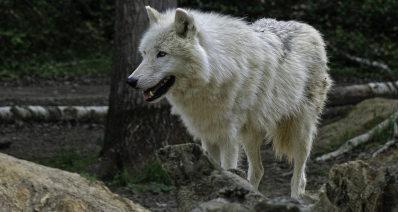Modal verbs: Arctic wolf
The Grammar Bit!
Read the three sentences opposite. They each contain a modal verb (bold). A modal verb is a special type of (auxiliary) verb that adds meaning to the main verb in the sentence.
One of the main functions of a modal verb is to show the degree of possibility or likelihood of something happening. The most common modal verbs that perform this function are will, would, should, could, may, can, shall, ought to, must and might. Many of these modal verbs have a negative form, e.g. couldn’t/could not, can’t/cannot etc.
You can add even greater meaning to the modal verb by combining it with a modal adverb. Some common modal adverbs (underlined) are perhaps, surely, probably, possibly, certainly, always, usually, generally, occasionally and never.
With your talk partner, see if you can replace the modal verb and/or modal adverb in each sentence with a suitable alternative from the lists above.
Scintillating Sentences
1) An Arctic wolf can survive for up to ten years in the wild, but could, if the conditions are right, live up to twenty years in captivity.
2) Arctic wolves will usually live in packs of five to seven members but might occasionally live on their own, using urine and scent to mark the borders of their territories.
3) Arctic wolves will generally hunt together to kill very large prey as an adult wolf may sometimes consume more than ten kilograms of meat per meal.

Did you know?
Arctic wolf pups are born with blue irises that change to a yellow/gold colour as they grow older.

